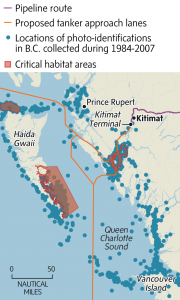In this article, published in the New York Times, author Coral Davenport discusses the true importance of the decision facing President Obama on the Keystone Pipeline, its potential effects on the environment and even the relative insignificance of the carbon emissions associated with opening the pipeline.
According to Davenport, “Mr. Obama’s eventual decision on the pipeline will have a marginal impact on global warming emissions” given that “the oil that would move through the Keystone pipeline would add 18.7 million metric tons of carbon to the atmosphere annually” compared to the already “5.5 billion tons” that is produced by the United States (Davenport, 6-8).
The carbon emissions produced by the oil moving through the pipeline “would amount to less than 1 percent of the United States greenhouse gas emissions, and an infinitesimal slice of the global total” (Davenport, 8).
In order to make significant changes in the current levels of carbon emissions produced by the United States, Davenport suggests, “Mr. Obama’s administration would have to enact policies that would force the two most polluting sectors of the nation’s economy – cars and coal plants – to slash their emissions” (Davenport, 10).
Interestingly, Davenport suggests that the 1% total that the Keystone Pipeline would contribute to the United States’ current emissions does not represent a large chunk, which mathematically speaking, it doesn’t. But given that the move to slash emissions for cars is already underway and that cutting coal emissions will be much more difficult, shouldn’t we try to stop ourselves from adding anymore?

Recent Comments